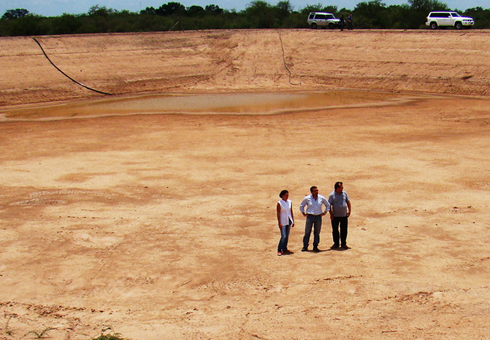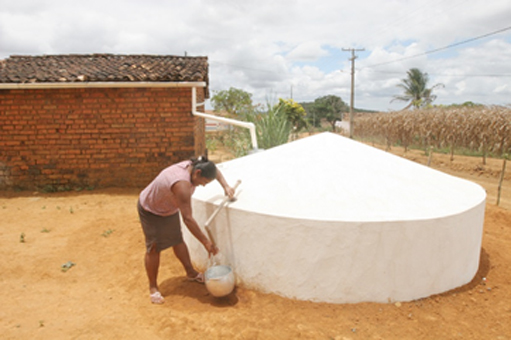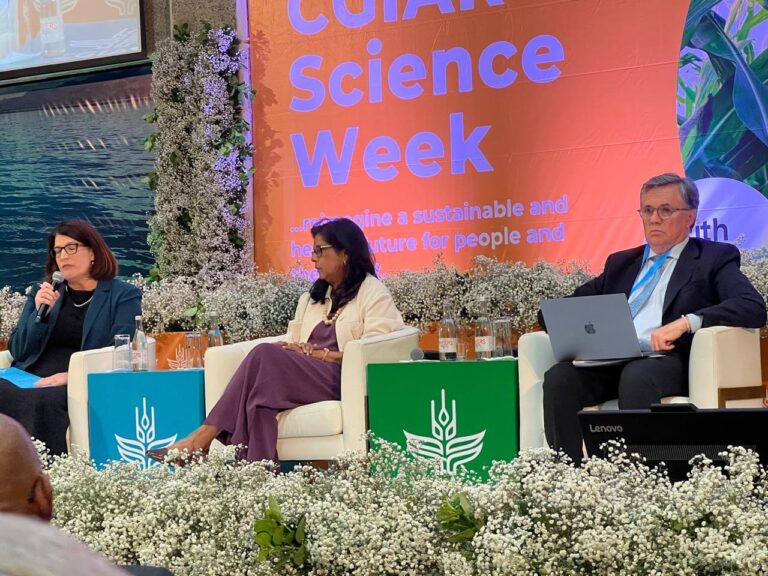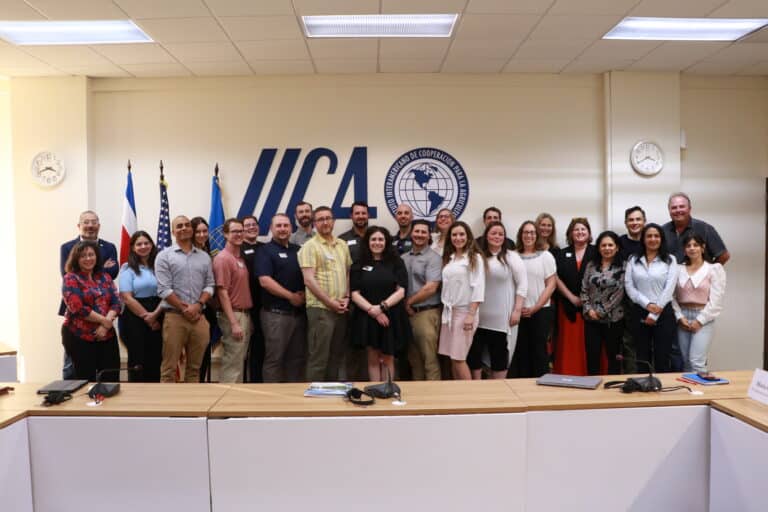IICA shares the experiences of Brazil and Paraguay with participants in the virtual course entitled “Good practices and technological innovations in water sowing and harvesting.”

San José, 28 June 2016. Promoters, community leaders and employees of various public and private entities broadened their capacities with a view to implementing area-based measures that support groundwater recharge and water harvesting for the benefit of family farming.
As part of the virtual course entitled “Good practices and technological innovations in water sowing and harvesting,” which will end in July, participants learned about the successful experiences of Brazil and Paraguay in managing soil, water and vegetative cover in the face of climate change.
The course was organized by the NGO Soluciones Prácticas, with support from the Inter-American Institute for Cooperation on Agriculture (IICA) via the Integrated Water Management in Family Farming (GIAAF) project.
During the course, the IICA Representative in Brazil, Hernán Chiriboga, shared the experience of the Department of Presidente Hayes in the Paraguayan Chaco, a semiarid region where small and medium-scale farmers have been affected by a reduction in rainfall due to global warming.
A system of channels and raised beds that collect water and channel it toward a reservoir was set up in the region, providing water to 200 families for irrigation and domestic use throughout a 240-day drought.
Another type of technology implemented in the region consists of rainwater catchment systems on the roofs of houses, water harvesting and conduction through troughs, as well as storage of water in tanks.
Gertjan Beekman, Coordinator of IICA’s Agriculture, Sustainable Management of Natural Resources, and Adaptation to Climate Change technical area, explained that rural water tanks were used in Irauçuba, Ceará, a region in northeast Brazil, to store rainwater that drained from the roofs of houses. Desalinators were used to transform brackish water extracted from wells fed by aquifers in sedimentary or crystalline rock formations.

As a long-term measure, containment barriers were constructed to hold back sediments generated by erosion in cultivated areas, preventing the loss of soil nutrients and fertility as a result of poor farming practices.
The course presented other technologies such as efficient irrigation systems using clay pitchers, the planting of fruit trees and vegetable seeds to produce food using small amounts of water, the development of agro-ecological practices, and the creation of demonstrative nurseries to plant fruit trees and ornamental plants that can be used to restore the environment.
According to Chiriboga and Beekman, integrated water resources management is critical to efficient crop management, in order to contribute to food security, sustainability, productivity, and the competitiveness of agriculture.
The experiences described in the course, which were developed within the framework of the Econormas project implemented by IICA, seek to improve knowledge in an effort to fight against desertification and drought. The project organizes interventions in critical regions in MERCOSUR member countries, in order to generate information, disseminate good practices, train personnel, and improve the quality of life of the populations that benefit.
More information:
GIAAF Project:
Virtual conference “Technologies for rainwater harvesting and its efficient use” (Spanish only)
Presentations:
https:/drive.google.com/file/d/0B-UXIIrDU9M8YllXRWhpb3pZd1U/view?usp=sharing
https:/drive.google.com/a/iica.int/file/d/0B-UXIIrDU9M8NW1qQmE2V1RVMWs/view?us p=sharing
IICA Web Portal on Desertification
www.iicadesertification.org.br
Video overview of the ECONORMAS EU Program (Spanish and Portuguese subtitles)











